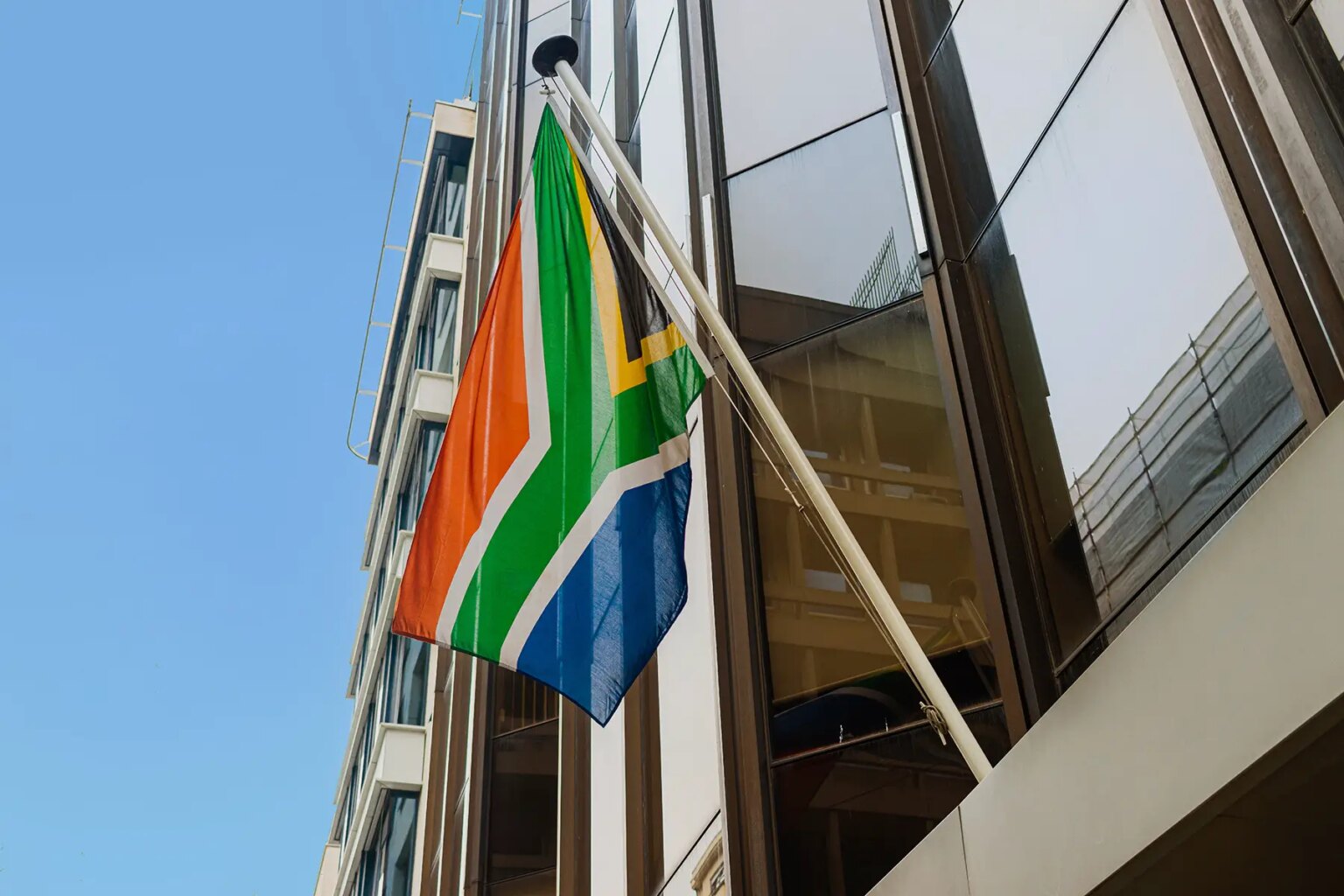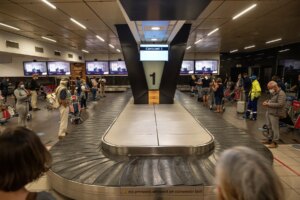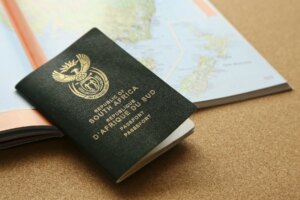Working abroad can be full of surprises and adventure. However, it also involves the logistics of getting yourself a valid work visa. Fortunately, getting a South African work visa is fairly straightforward. In this article, we review the different types of visas, the required qualifications, and where to direct your appeal.
We discuss the following topics to help guide you through the process of getting a work visa:
- Working in South Africa
- Who needs a work visa in South Africa?
- Types of work visas in South Africa
- General Work Visa
- Critical Skills Visa
- Intra-company Transfer Work Visa
- Corporate Work Visa
- Work visas in South Africa for students
- Work visas in South Africa for self-employed individuals
- Volunteering and work experience in South Africa
- South African work visas for family members
- Appeals about work visas in South Africa
- Useful resources
IBN Immigration Solutions
Planning to move to South Africa on a work visa? IBN Immigration Solutions is a leading Africa-focused immigration agency offering multilingual visa and permit services. With personalized support, expert consultants, and global reach, they ensure peace of mind for expats and businesses alike.
Working in South Africa
The Department of Home Affairs makes decisions on South African work visas. Although it has its own quirks, the immigration requirements are fairly similar to many other countries. In order to get a South African work visa, most people need a job offer in hand already; for exceptionally qualified candidates, there is the option to apply for a Critical Skills Work Visa, which allows successful applicants to look for jobs in South Africa after moving to the country.
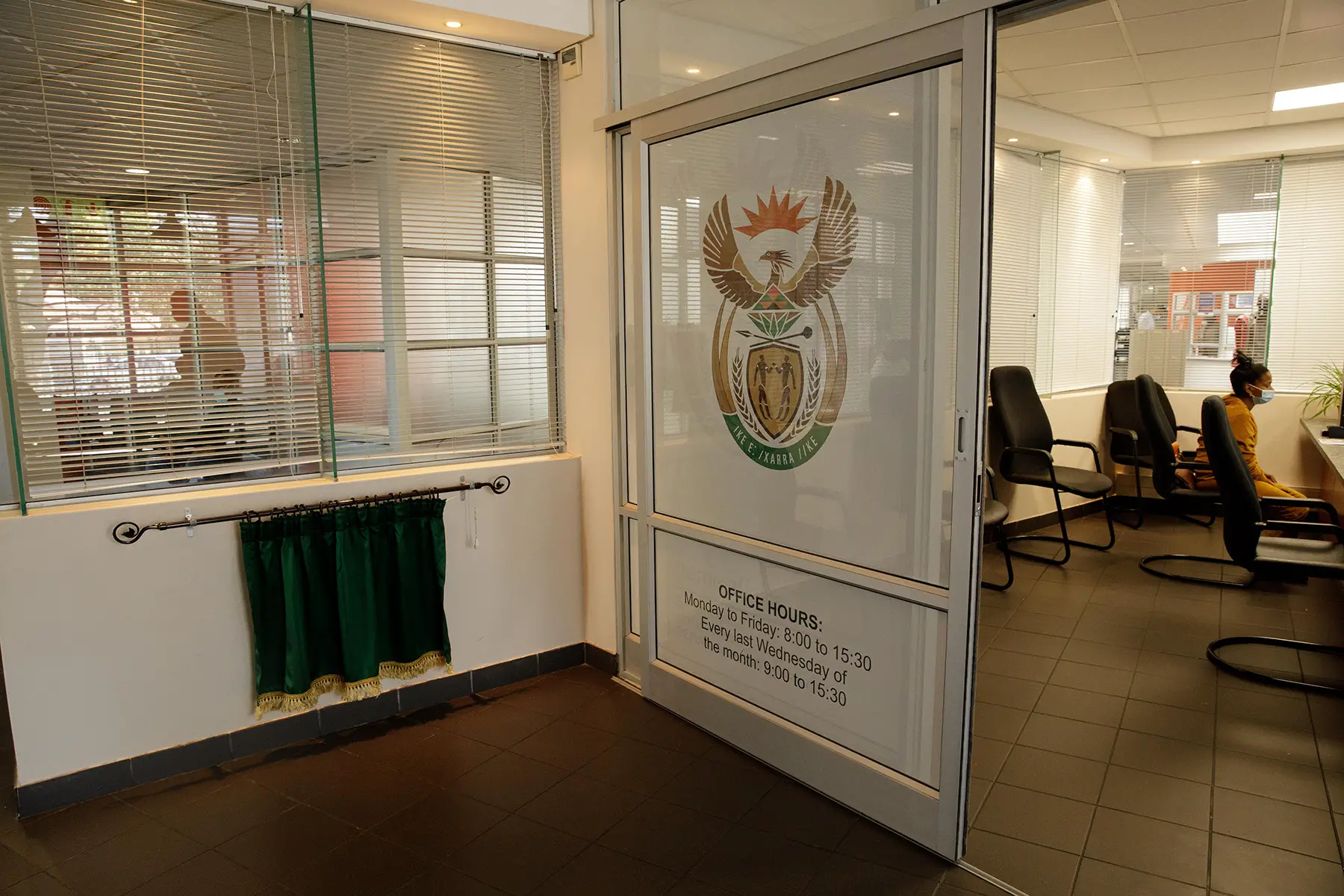
Although there are no firm numbers on how many work visas are issued annually, South Africa does host almost three million immigrants and 75% of these immigrants hail from the African continent (primarily Mozambique, Lesotho, and Zimbabwe). Europe is the second-largest source of immigrants in South Africa, mostly from the United Kingdom, Germany, and the Netherlands. It’s important to remember that the treatment that African immigrants receive, both by locals as well as from immigration officials, is far different (and generally worse) than the treatment received by non-African immigrants. Although South Africa does not have employment quotas based on employment categories, the government is seriously discussing this system as an option.
Who needs a work visa in South Africa?
Generally speaking, anyone who is not a citizen or a permanent resident of South Africa needs a South African visa in order to work in the country. There are some limited exceptions to this, including heavy-duty vehicle drivers from other southern African countries, anyone working for either the Southern African Development Community or the United Nations, or foreign military members entering on the invitation of the South African National Defence Force.
The South African government maintains a list of visa-exempt countries and professions. Make sure you consult it to see if the exemptions apply to you.
Some applicants may find it easier to obtain a visa depending on their skillset and whether they already have a job offer in place. Others, often from African countries or with less skilled or semi-skilled work backgrounds, may find it much harder.
Types of work visas in South Africa
According to the Department of Home Affairs, there are four main types of South African work visas. They are as follows:
- General Work Visa
- Critical Skills Work Visa
- Intra-company Transfer Work Visa
- Corporate Work Visa
Other, less common types of work visa include:
General Work Visa
The South African General Work Visa is for anyone looking to work in South Africa for a specific employer. You must have a job offer in hand before applying for this type of visa. General Work Visas are valid for the duration of the contract up to five years.
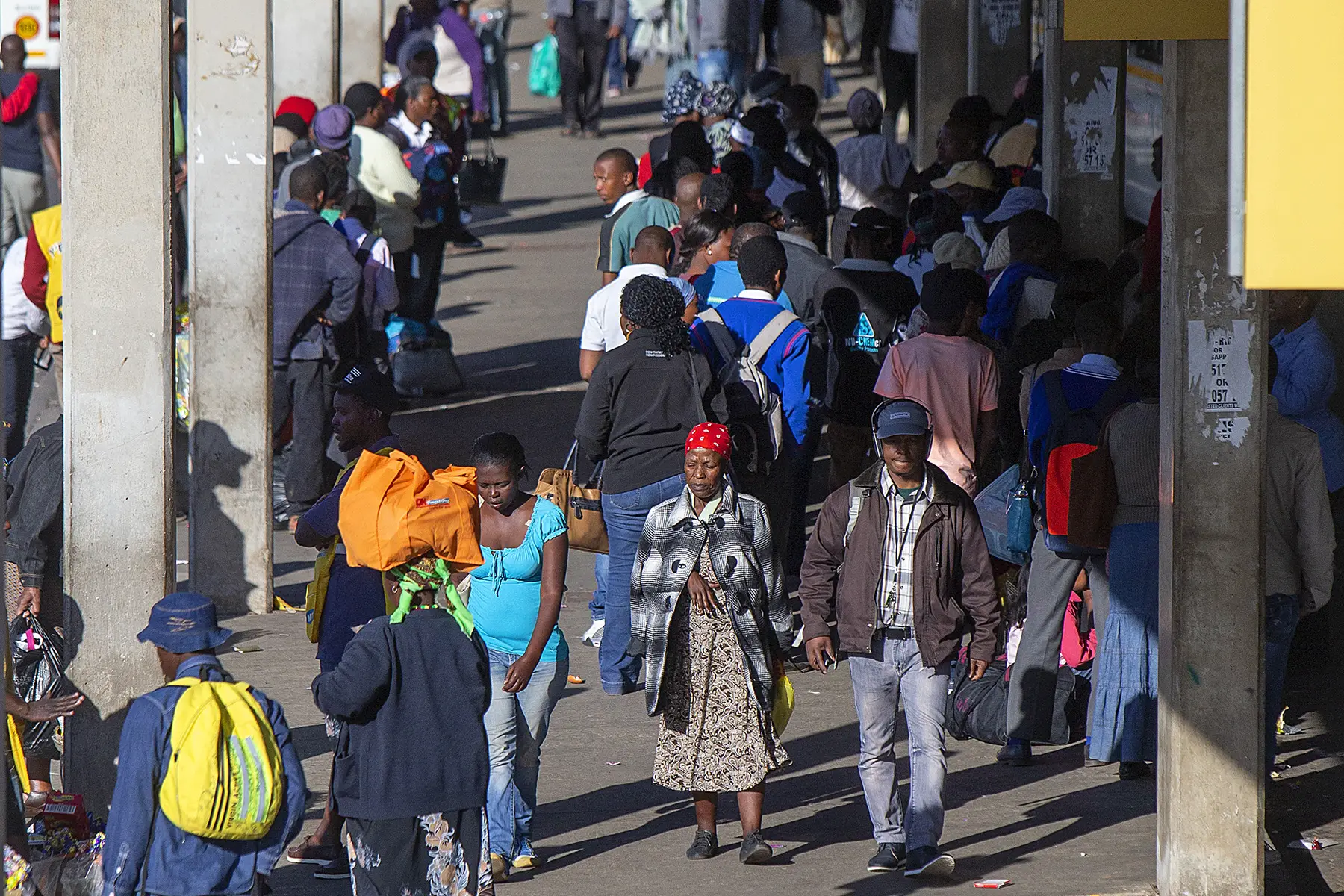
The General Work Visa is the most common type of work visa for South Africa. To obtain one, the employing company must show documentary proof that they tried to employ a South African citizen first and could not fill the position; for example, showing advertisements of the position in the local media.
Secondly, the applicant must submit proof of their qualifications and experience. The South African Qualifications Authority must also approve their qualifications. Unfortunately, meeting this standard can be inconsistent and may depend on the immigration officer working on the case. Fortunately, most employers have worked with immigration authorities long enough to have developed best practices for submitting an application.
Requirements for the General Work Visa
- Completed application form
- Signed employment contract from a South African employer, if applicable
- Proven skills and qualifications to match the job offer
- Proof of qualifications translated into an official South African language and evaluated by the South African Qualifications Authority
- Bank statements to prove that you can support yourself until you receive your salary
- Salary and benefits should not be less than the average for South African employees
- Medical report
- Radiological report
- Police clearance from any place you’ve lived as an adult for longer than 12 months
How to apply for the General Work Visa
You can find your visa requirements online, with VFS Global, the official portal for the Department of Home Affairs. Here, you can schedule an appointment at your local South African embassy or consulate, where you will complete the application. Then, at your visa application appointment, bring the necessary documents.
Keep in mind that part of the process is providing biometric information, such as providing a photograph and fingerprints. After your visa appointment, you receive a reference number to track your application. Processing times depend on your embassy; in some countries, applications take days, while in others, it takes several weeks. Once your application is approved, you can return to your consulate to pick up the visa.
Costs for the General Work Visa
The application fee for a General Work Visa is R1,520. However, VFS charges a R1,550 service fee, bringing the total to R3,070. However, some consulates allow you to make your payments at your appointment, so be sure to verify if that is the case.
General Work Visa length
The validity of the General Work Visa is set to the duration of the employment contract, so be sure to discuss this with your employer. However, the maxiumum length of these visas is five years. After five years of living in South Africa, you are eligible for permanent residence.
Critical Skills Visa
The Critical Skills Visa is for candidates trained in certain employment fields that are experiencing a labor shortage in South Africa. The employment fields are published by the Minister of Home Affairs in the Government Gazette.
As of August 2022, South Africa lists 140 different professions on the critical skills list, primarily in fields such as information technology, engineering, life sciences, and earth sciences. For fields that have professional guilds or bodies, you must provide confirmation from a relevant professional body that your qualifications and experience are appropriate.
Some of the skills currently considered as critical are:
- Agricultural engineer
- Boilermaker
- Business analyst
- Financial investment advisor
- Geochemist
- Geologist
- IT security specialist
- Mining technician
- Nursing professionals
- Pressure welder
- Soil scientist
- Urban and regional planner

The upshot of this visa is that, if your documents are all in line, your application is likely to be approved due to the South African government’s focus on skill shortages. Additionally, you do not need a job offer in hand to apply for a Critical Skills Visa; if you don’t have an employment offer, you can apply for a one-year visa to look for work in South Africa.
Requirements for the Critical Skills Visa
- Completed application form
- Signed employment offer, if applicable
- Proven skills and qualifications, including verification by any relevant professional bodies
- Proof of qualifications translated into an official South African language and evaluated by the South African Qualifications Authority
- Police clearance from any place you have lived as an adult for longer than 12 months
- Medical report
- Radiological report
How to apply for the Critical Skills Visa
You can find your required documents online for the Critical Skills Visa at VFS Global. However, it is still a good idea to call or visit your local embassy or consulate to find out their recommended route for applying; they can also give you a better idea of processing times for your kind of application and any pitfalls you need to watch out for. They can also advise you on how best to schedule your visa appointment. At your visa appointment, you submit all of your documents and biometrics. Then, you’ll receive a reference number to track your application. Once your visa is approved, you can return to the embassy or consulate one last time to pick it up.
Costs for the Critical Skills Visa
The application fee for a Critical Skills Visa is R1,520. As with the General Work Visa, VFS charges a R1,550 service fee, bringing the total to R3,070. Check with your consulate to see if you can pay in person.
Critical Skills Visa validity
If you have a job offer, your Critical Skills Visa lasts for the length of your employment contract. If you do not have a job offer, your visa expires after one year. The idea behind the one-year validity term is that successful applicants use that year to find work and then, once you receive a job offer, you extend your visa to match the length of the contract. Like General Work Visas, Critical Skills Visas are valid for a maximum of five years.
Intra-company Transfer Work Visa
An Intra-Company Transfer Work Visa is for employees of multinational organizations who will be stationed by their company at a location in South Africa.

For this work visa, companies do not need to prove that they sought out a suitably-qualified candidate from South Africa for the role; however, the applicant must have worked at the company for at least six months before applying for this visa.
Requirements for the Intra-company Transfer Work Visa
- Completed application form
- Signed employment contract
- Letter from the company demonstrating that the applicant will be posted to a branch in South Africa
- Letter from the company’s South African branch confirming that the applicant will be posted in their office
- Police clearance from any place you have lived as an adult for longer than 12 months
- Medical report
- Radiological report
How to apply for an Intra-company Transfer Work Visa
Required documents are available online at VFS Global, but be sure to speak with both your local embassy and your employer’s immigration affairs department. This way, you get the complete picture of the requirements you need to meet. Your local embassy or consulate can inform you about what processing times you should expect. Applicants visit the embassy or consulate for their appointment to submit the documents and collect biometric data. Once your application is complete, the office provides you with a reference number to track your application. Then, when your visa is ready, return to the embassy or consulate and pick it up.
Intra-company Transfer Work Visa costs
The costs for an Intra-company Transfer Work Visa are the same as the other work visas: an R1,520 application fee along with an R1,550 service fee (R3,070 in total). Check with your local embassy to see if you can pay in person.
Validity of an Intra-company Transfer Work Visa
Intra-company Transfer Work Visas have a maximum validity of four years. This visa cannot be extended or renewed. However, in some instances, a brand-new application can be submitted after the four-year window.
Corporate Work Visa
Suppose a business, often in the farming, mining, or engineering sector, needs to recruit a larger number of international workers due to a domestic skills shortage. In that case, it needs to apply with the number of workers required and provide specific job descriptions. The employer must also prove that they could not find employees with the relevant skills in the South African labor market.
Requirements for the Corporate Work Visa
- Completed application form
- Medical report
- Radiological report
- Police clearance certificate
- Employment contract
- Proof of qualifications
- Certificate of registration
How to apply for a Corporate Work Visa
You can apply for the Corporate Work Visa on VFS Global. If the Corporate Work Visa is approved, then the Department of Home Affairs (DHA) will issue each employee with a Corporate Workers Certificate. The employer will then convert this into a Corporate Workers Visa. This is valid for up to three years in South Africa.
The processing times for Corporate Work Visas is up to 60 days.
Corporate Work Visa costs
The costs are R1,520 for the application fee and R1,350 for the service fees; these are paid by the employer and employee, respectively.
Work visas in South Africa for students
International students studying in South Africa may work during their studies. Students may perform part-time work of up to 20 hours a week, provided that it doesn’t interfere with their studies. If you stay within these limits, you do not need a work visa beyond your South African student visa. However, if you plan to work more than 20 hours per week, you must apply for a South African work visa.
Work visas in South Africa for self-employed individuals
South Africa does not currently have visas specific for freelancers, entrepreneurs, or self-employed people. If you are looking for a visa to gain entry to South Africa, consider finding a job through an employer willing to sponsor your visa or checking if you would qualify through any of the critical skills fields experiencing labor shortages.
Volunteering and work experience in South Africa
If you’re hoping to volunteer in South Africa, you must apply for a Volunteer Visa. A Volunteer Visa is a type of visitor visa that is valid for up to three years. Be sure to apply at your local consulate. While volunteering, you may receive a daily food stipend but cannot otherwise receive payment from the organization you volunteer with.
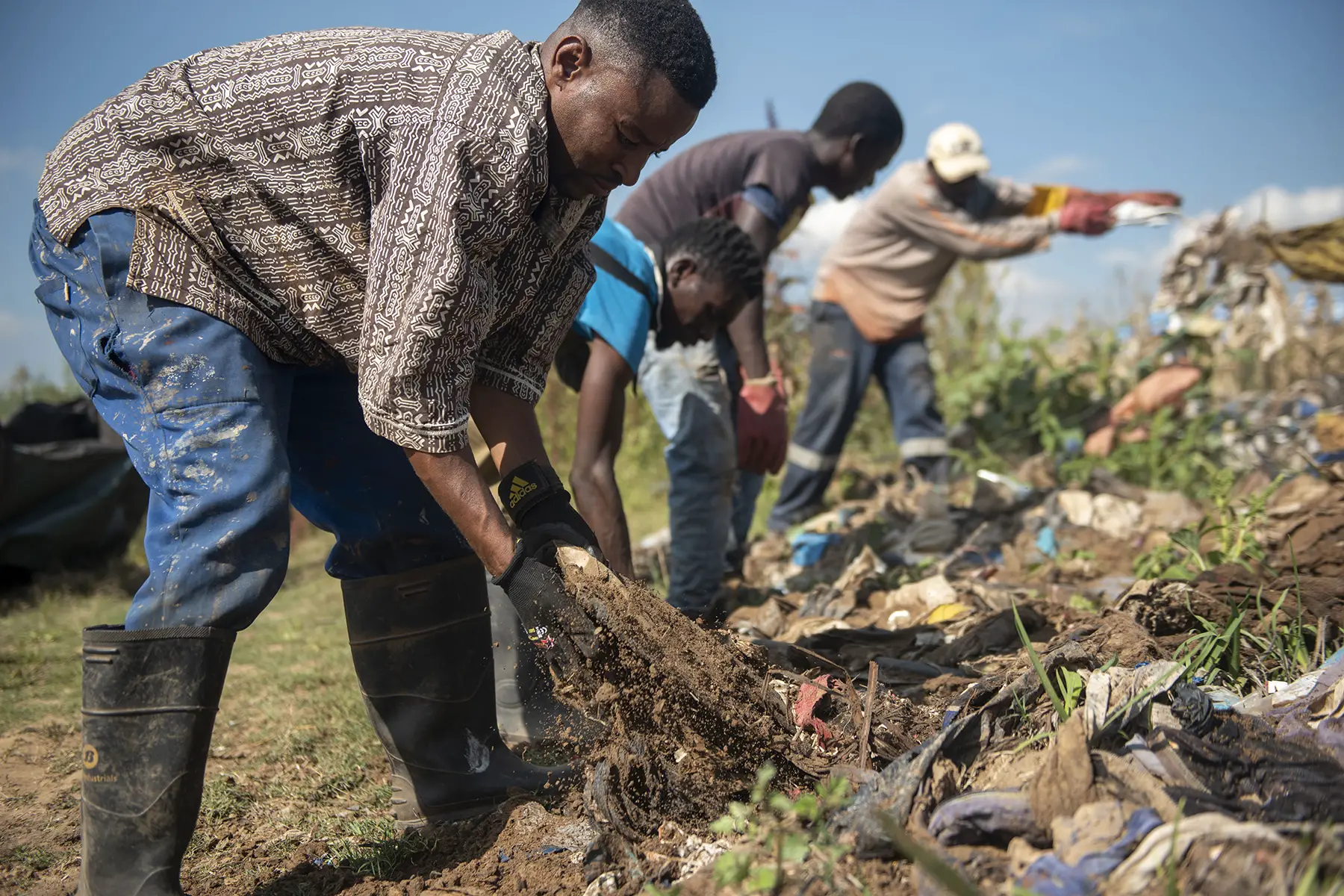
The Volunteer Visa application costs R425 in addition to the R1,550 service fee. The necessary documents for this visa are as follows:
- Completed application form
- A copy of your volunteer agreement with the charitable organization
- Proof of sufficient funds for your stay
- Police clearance from everywhere you have lived as an adult for longer than 12 months
- Medical report
- Radiological report
South African work visas for family members
If you are seeking a Temporary Residence Visa (e.g., General Work Visa, Critical Skills Visa, Intra-company Transfer Work Visa), then you can include your family members on your visa application. Family members include spouses and dependents. Once approved, your family’s visas will mirror yours in duration. However, family members may not work or study while attached to your Temporary Residence Visa; they must apply for their own visa in order to work or study.
Appeals about work visas in South Africa
Ultimately, the Department of Home Affairs has authority over visas and permits. If your visa application is denied, contact an immigration law expert, like IBN Immigration Solutions. They can help you decide on the next step that’s best for your situation.
When an application is denied, the applicant receives the reason for rejection and information about how to appeal. It may be something as simple as providing documents that you may have forgotten to include, or something more complex. A lawyer can help you decide if you should submit an appeal, submit a brand-new application, or just drop the case entirely.
Time is of the essence: once you receive a negative decision on a visa application, you only have 10 working days to appeal it. Appeals must be submitted in person at a Department of Home Affairs office, a VFS Global site, or at your local embassy or consulate.
Useful resources
- South Africa’s Department of Home Affairs – responsible for issuing visas and permits
- VFS Global – Online portal for visa information and application
- South African Qualifications Authority – body that evaluates qualifications from abroad
